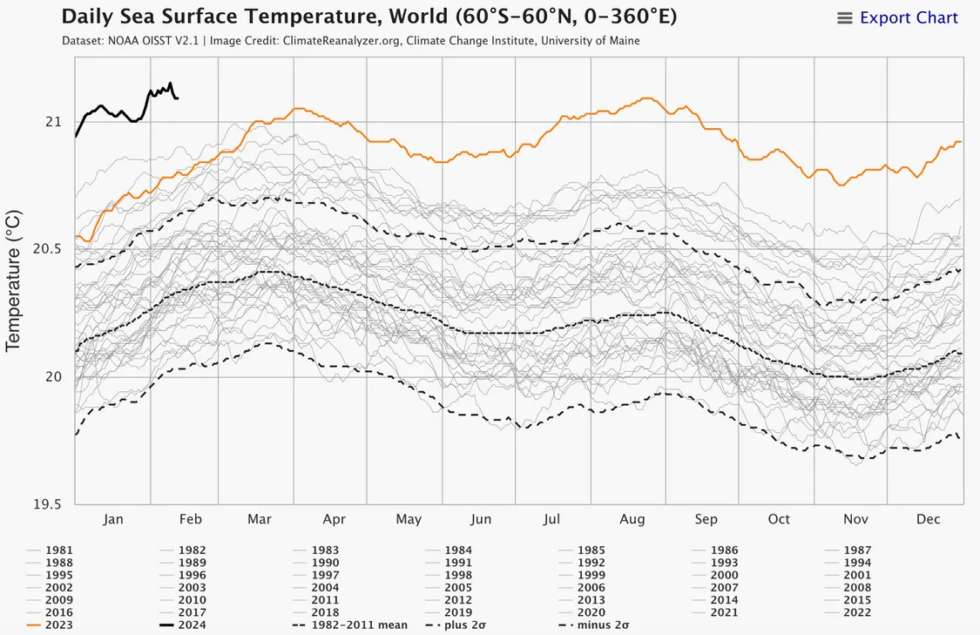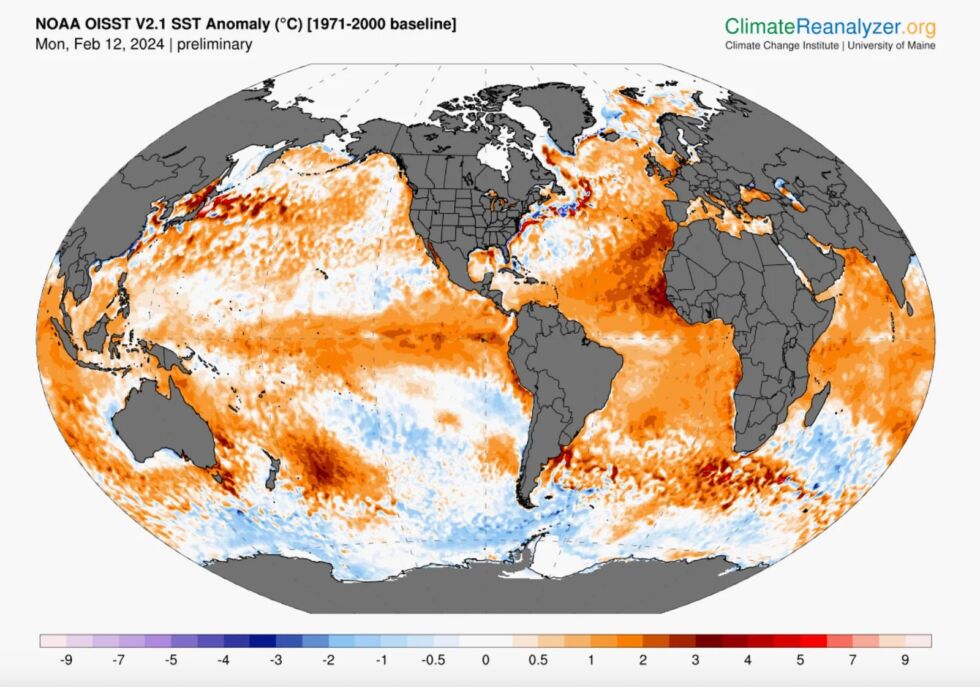Skyrocketing ocean temperatures have scientists scratching their heads


jay_zynism via Getty
For nearly a year now, a bizarre heating event has been unfolding across the world’s oceans. In March 2023, global sea surface temperatures started shattering record daily highs and have stayed that way since.
You can see 2023 in the orange line below, the other gray lines being previous years. That solid black line is where we are so far in 2024—way, way above even 2023. While we’re nowhere near the Atlantic hurricane season yet—that runs from June 1 through the autumn—keep in mind that cyclones feed on warm ocean water, which could well stay anomalously hot in the coming months. Regardless, these surface temperature anomalies could be triggering major ecological problems already.

“In the tropical eastern Atlantic, it’s four months ahead of pace—it’s looking like it’s already June out there,” says Brian McNoldy, a hurricane researcher at the University of Miami. “It’s really getting to be strange that we’re just seeing the records break by this much, and for this long.”
You’ll notice from these graphs and maps that the temperature anomalies may be a degree or two Celsius warmer, which may not sound like much. But for the seas, it really is: Unlike land, which rapidly heats and cools as day turns to night and back again, it takes a lot to warm up an ocean that may be thousands of feet deep. So even an anomaly of mere fractions of a degree is significant. “To get into the two or three or four degrees, like it is in a few places, it’s pretty exceptional,” says McNoldy.

University of Maine
So what’s going on here? For one, the oceans have been steadily warming over the decades, absorbing something like 90 percent of the extra heat that humans have added to the atmosphere. “The oceans are our saviors, in a way,” says biological oceanographer Francisco Chavez of the Monterey Bay Aquarium Research Institute in California. “Things might be a lot worse in terms of climate impacts, because a lot of that heat is not only kept at the surface, it’s taken to depths.”
A major concern with such warm surface temperatures is the health of the ecosystems floating there: phytoplankton that bloom by soaking up the sun’s energy and the tiny zooplankton that feed on them. If temperatures get too high, certain species might suffer, shaking the foundations of the ocean food web.
Source link




